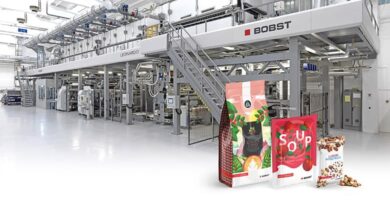Is 3D Printing Revolution Fizzling?
Stratasys (SSYS), the company that owns 3-D consumer printer MakerBot, saw its stock plunge more than 30% after the company warned that fourth quarter earnings would be worse than expected late Monday. It also issued a poor forecast for the rest of 2015.
Not even an attempt to capitalize on the Super Bowl halftime show buzz was enough to help.
Stratasys put out a press release Tuesday morning to tout the fact that it was making 3-D printed mohawk headpieces to be worn by Katy Perry’s backup dancers on her upcoming world tour.
The shocking results from Stratasys caused a big sell-off in the industry as well. Shares of key rival3D Systems (DDD) fell nearly 10%. The stocks of two smaller 3-D printing companies — ExOne(XONE) and voxeljet (VJET) — were significantly lower as well.
The 3-D printer revolution: 3-D printers have gone mainstream in the past few years. Amazon(AMZN, Tech30) has a 3-D printing store on its site. Staples (SPLS) sells MakerBot products as well as the Cube from 3D Systems. Heck, even struggling RadioShack has 3-D printers at many of its locations.
Rendering images in 3-D and printing them out is undeniably cool. It’s something that many businesses in a variety of industries are using. Clothing, engine parts, food and hearing aids are just a few examples of items that can be produced with 3-D printers.
But 3-D printing for consumers may just turn out to be a fad that is in the process of peaking. The main reason for the worse-than-expected sales for Stratasys in the fourth quarter was slowing growth at MakerBot.
Not a household item: 3-D printers are still pretty expensive. The MakerBot Replicator Mini sells for $1,375.
“The consumer market for 3-D printing is on the downswing” said Cathie Wood, chief investment officer at Ark Investment Management. But Wood still likes Stratasys stock. In fact, she said her firm bought more Tuesday as it fell. She calls it a “fall through the cracks” kind of stock.
Wood concedes that earnings estimates for Stratasys will be reduced sharply as a result of its warning. And several Wall Street analysts were quick to cut their price targets and ratings on the stock Monday night and Tuesday morning.
Still, she thinks investors are overreacting to the poor performance at MakerBot and said that the manufacturing side of the 3-D printing market is still an “expansive opportunity.”
Her firm also owns shares of ExOne as well as Materialise (MTLS), another 3D printer stock.
Wood is probably right that 3-D printing will be a huge business on the industrial side.
But other companies recognize that already. The 3-D printing pure play companies are inevitably going to face more competition. Hewlett-Packard (HPQ, Tech30) is planning to enter the business next year, for example.
And the company that winds up dominating the industry in the future may still not even exist.
But the big pullback in the stock shows how risky it is to invest in any industry that’s still in its infancy. Only a few companies may wind up surviving.
Remember Think Global, Aptera, Coda Automotive and Fisker? They are electric car companies that didn’t wind up becoming Tesla (TSLA). They all went bankrupt.





